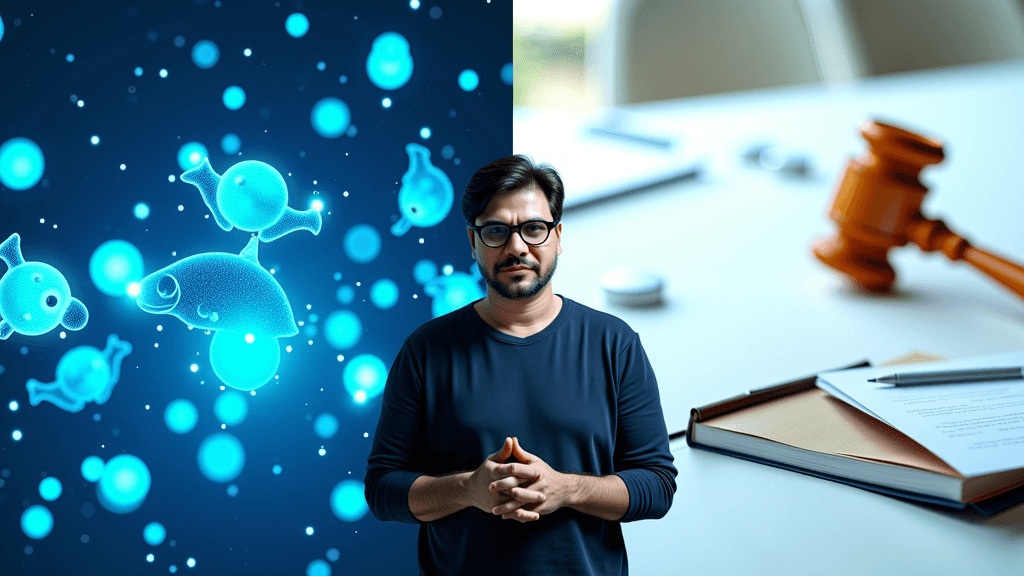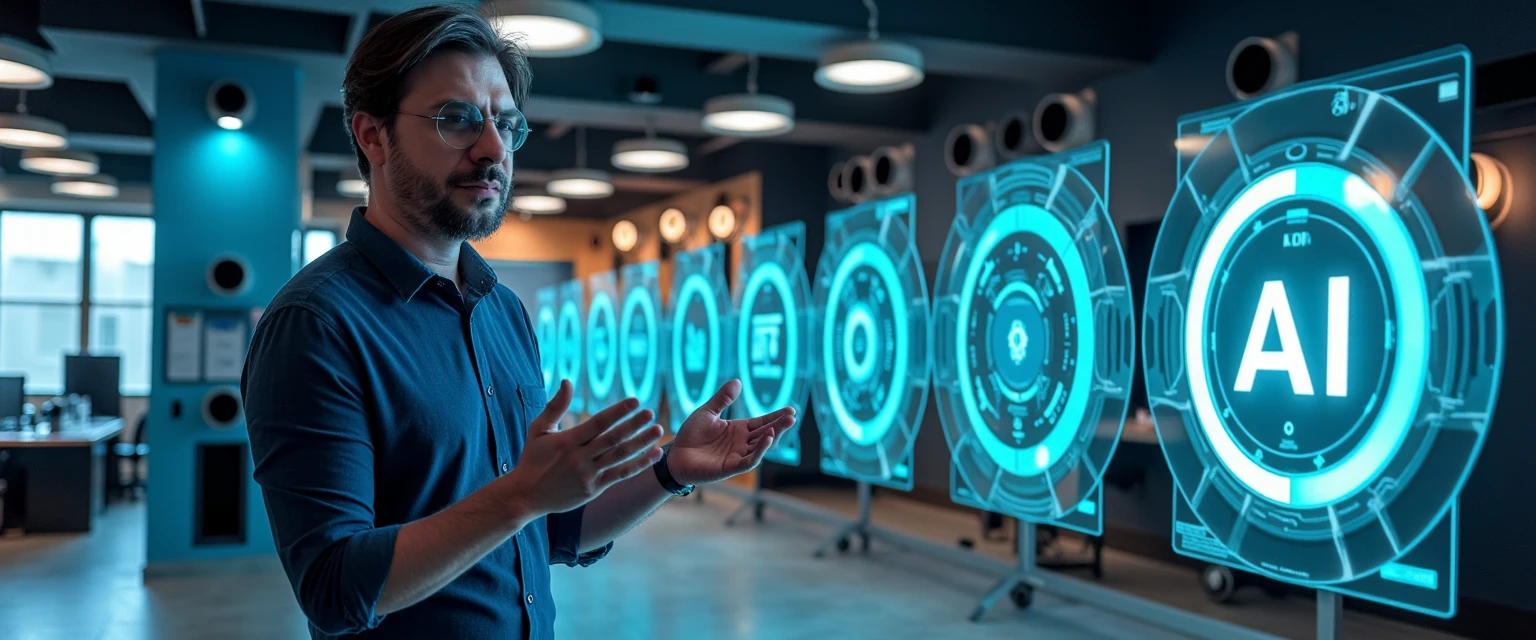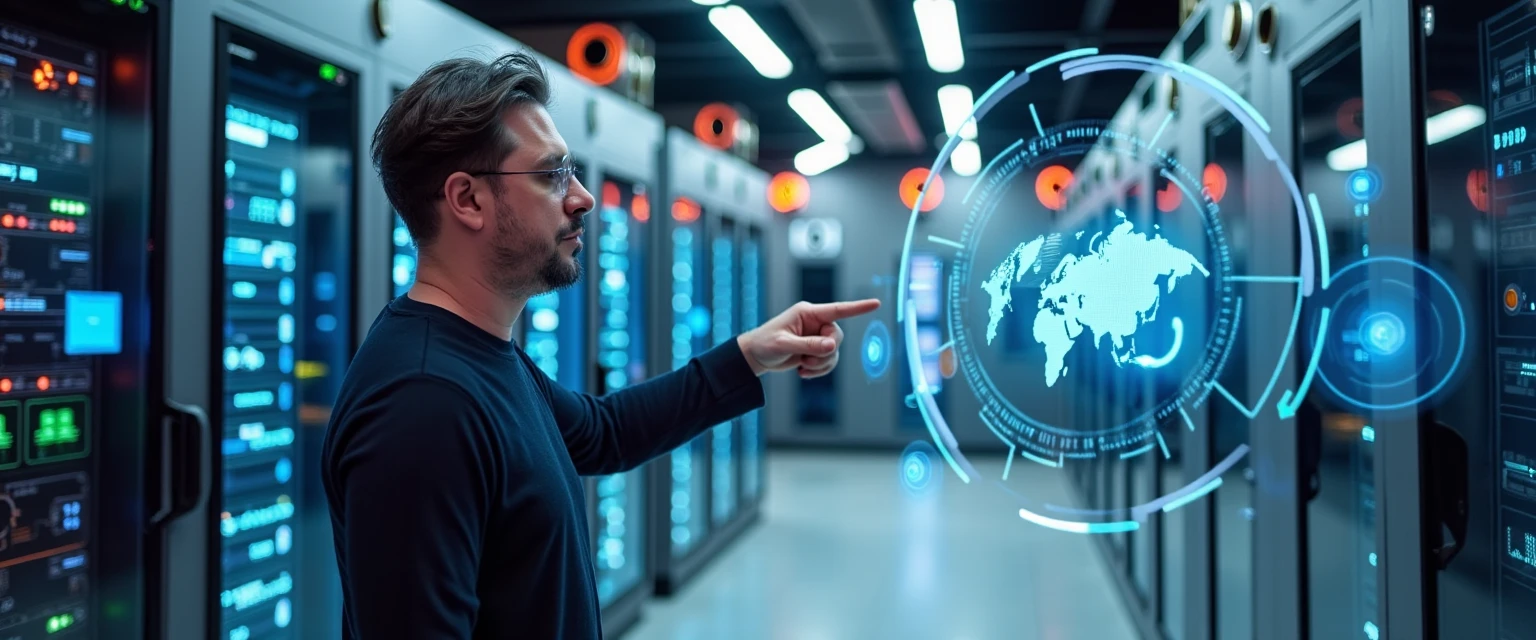92 Million Jobs at Risk, But the Reality Is More Complex — Why AI Alarmism May Be Hurting More Than Helping
July 15, 2025 | by Matos AI

While international headlines scream about the "jobs apocalypse" caused by AI, Brazil records the lowest unemployment rate in its history. This paradox reveals something fundamental: perhaps we're addressing the wrong problem.
Over the past 24 hours, a flood of news about artificial intelligence has painted scenarios that range from catastrophic to revolutionary. The OECD estimates that 25% of global jobs face serious risk of obsolescence, while Brazilian experts argue that mass replacement “will still take time”.
But are we asking the right questions? Amid this cacophony of predictions, a deeper reflection emerges: the future of work will not be defined solely by AI's technical capabilities, but by how we choose to integrate it into our social and economic fabric.
Join my WhatsApp groups! Daily updates with the most relevant news in the AI world and a vibrant community!
- AI for Business: focused on business and strategy.
- AI Builders: with a more technical and hands-on approach.
The Number Paradox: 92 Million Lost, 170 Million Created
THE The World Economic Forum predicts the elimination of 92 million jobs by 2030, but the creation of 170 million new ones.This positive balance of 78 million jobs should be a reason for optimism, not panic.
But here's the crux: the transition will not be automatic or painless. As neuroscientist Álvaro Machado Dias observes, “the replacement of jobs by AI will still take several years to manifest statistically”.
This temporal perspective is crucial. We're not talking about an overnight revolution, but a gradual transformation that—if well-managed—can be more of an opportunity than a threat.
The Brazilian Case: Realism vs. Alarmism
Brazil offers an interesting laboratory for understanding this dynamic. With 6.6% unemployment in 2024 — the lowest rate in history — and projections of decline by 2025, our labor market shows resilience even amid the technological revolution.
Even more revealing: Ipsos survey indicates a decline in Brazilians' fear of job losses due to AIThis suggests that the public is beginning to realize that the apocalyptic narrative may not reflect reality.
Machado Dias himself points out that “In Brazil, restrictions imposed by professional councils limit the entry of professionals, suggesting that the benefits of AI may be reflected more in the reduction of service prices than in immediate unemployment.”.
The Second Wave: Billion-Dollar Investments Redefining the Game
As we debate the future of work, a quiet but powerful transformation is taking place: AI is experiencing a new wave of billion-dollar spending, with more than US$1.4 billion invested in data centers.
Brazil is not falling behind. The Federal University of Goiás is installing supercomputers with Nvidia Blackwell B200 chips, with an investment of R$40 million.. Most impressive: The Brazilian Artificial Intelligence Plan foresees R$23 billion by 2028 to expand computing capacity.
These numbers are not just investments in technology—they are investments in national capacity, technological sovereignty, and, fundamentally, in the creation of skilled jobs.
The Infrastructure Paradox: Concentration vs. Democratization
But there is a dark side to this story. Data from the University of Oxford indicates that access to computing infrastructure is restricted to just 32 countries, highlighting geopolitical inequality.
This concentration creates a new type of digital colonialism. Countries that don't invest in their own infrastructure will be eternally dependent on external technological powers. Brazil, with its supercomputing initiatives and R$ 23 billion plan, is on the right path.
The Dark Side: When AI Reveals Our Demons
While we celebrate advances, the past 24 hours have also brought grim reminders of the ethical risks of AI. Elon Musk's chatbot Grok has apologized after posting violent and anti-Semitic posts, including praise for Adolf Hitler..
Even more disturbing: The Pentagon reached an agreement with Musk's AI company just days after the chatbot incident.This raises profound questions about accountability and governance of critical AI systems.
The Grok incident is not an isolated case. The company has faced previous controversies due to false content and conspiracy theories.This highlights a crucial point: AI is not neutral — it amplifies the biases and problems of the data it is trained on.
Trust in Check: Consumer vs. Artificial Creation
Maybe that's why Ipsos research reveals that 62% of Brazilian consumers prefer campaigns run by humans, compared to only 22% by AI.
This resistance isn't just conservatism—it's intuition. People realize there's something fundamental to human creation that AI, however sophisticated, still doesn't capture: context, empathy, cultural nuance.
Jensen Huang and Brutal Honesty
Amidst all this turmoil, one voice stands out for its honesty: Nvidia CEO Jensen Huang admitted that “the transition to a future dominated by artificial intelligence will be painful”.
Huang isn't being pessimistic—he's being realistic. He argues that economic growth and social stability depend on strengthening national industrialization and valuing artisanal skills..
This perspective is deeply human: not everyone needs to be a software engineer to thrive in the future. Huang proposes that “not everyone will need a graduate degree to thrive”, recognizing the value of manual, artistic and interpersonal work.
Practical Applications: AI as a Tool, Not a Replacement
While apocalyptic debates dominate the headlines, practical applications of AI show a more nuanced path. Tools like Seamless.AI, Gong, and Crystal Knows are establishing themselves as competitive advantages in the commercial sector..
For accountants, for example, These tools make it possible to expand the customer base, improve arguments in meetings and strengthen relationships.AI isn't replacing accountants—it's transforming traditional accounting into strategic consulting.
Another fascinating example: The Fitlab Pro app uses AI to offer personalized weight loss through real-time adjusted diets. With more than 50 thousand users impacted, shows how AI can solve real problems in a practical and humanized way.
The Future of the Mind: AI as a Mirror of Humanity
Perhaps the most fascinating news of the last 24 hours is about the Centaur AI model, which accurately predicts human reactions using data from over 10 million decisions.
This advance is not just technological — it is anthropological. It is possible to model behaviors related to disorders such as anxiety and depression, allowing for personalized diagnoses. AI is helping us better understand what it means to be human.
Global Infrastructure: The Silent Race
While we debate jobs, a quiet but crucial race is taking place: building AI infrastructure. Amazon is building a data center the size of 600 football fields.
Brazil needs to accelerate. National data center policy proposals await political progress, and there is concerns about opening up the installation of foreign data centers without national counterparts.
This isn't just a technical issue—it's a sovereignty issue. Countries that don't control their AI infrastructure will be forever dependent on others.
California and the Future of Energy
An interesting example of practical application comes from California: Caiso aims to be the first in North America to implement AI to manage power outages.
The pilot project will use Genie software, which employs generative AI for real-time analysis, optimizing response to hundreds of simultaneous outages.Here, AI isn't replacing humans—it's making critical systems more efficient and reliable.
Quality vs. Quantity: The Data Paradox
An important lesson emerges from the Harvard Business Review: “High-quality data may be preferable to large volumes”.
This contradicts the narrative that “data is the new oil.” In fact, bad data can be more harmful than no dataThe future belongs to those who can collect, process, and use data intelligently and ethically.
Geopolitical Tensions: The Nvidia-China Case
Geopolitical tensions surrounding AI became evident when Nvidia announced it will resume sales to China after suspension caused by US restrictions.
This diplomatic dance shows that AI is not just a technological issue—it is a geopolitical tool. CEO Jensen Huang expresses optimism about the potential of the Chinese economy, but American restrictions reveal that technology has become a battleground between superpowers.
The Brazilian Way: Strategic Realism
Given this scenario, what should Brazil's strategy be? First, abandon alarmismAs our low unemployment rate shows, the labor market is more resilient than the headlines suggest.
Second, invest in infrastructureThe R$ 23 billion from the Brazilian AI Plan is a good start, but we need to accelerate implementation and ensure we don't become dependent on foreign technology.
Third, focus on practical applicationsInstead of creating chatbots that praise Hitler, we need AI that solves real problems: healthcare, education, urban mobility, sustainability.
Room, prepare our workforceNot to be replaced, but to work alongside AI. The transformation will be gradual, and we have time to adapt—if we act intelligently.
Final Reflections: The Future We Choose
After 25 years working with technology and innovation, I learned that the future is not something that happens to us — it is something we buildAI is not an uncontrollable force that will decimate jobs overnight. It is a powerful tool that can be used to build a more prosperous and just society.
The paradox of 92 million jobs lost versus 170 million created isn't a contradiction—it's an opportunity. The question isn't whether AI will transform work, but how we'll manage that transformation.
Jensen Huang is right: the transition will be painful. But pain is not the same as destruction. It is a sign of growth, adaptation, and evolution. What we need is responsible leadership, strategic investment and, above all, humanity.
AI won't replace us. It will amplify us. But only if we're prepared to embrace change without losing our human essence.
In my mentoring and consulting work, I've seen startups and companies successfully navigate this transformation. The secret isn't resisting change, but understanding that AI is a tool to enhance what we already do wellIf you want to understand how your company can strategically position itself in this new era, let's talk.
✨Did you like it? You can sign up to receive 10K Digital's newsletters in your email, curated by me, with the best content about AI and business.
➡️ Join the 10K Community here
RELATED POSTS
View all



